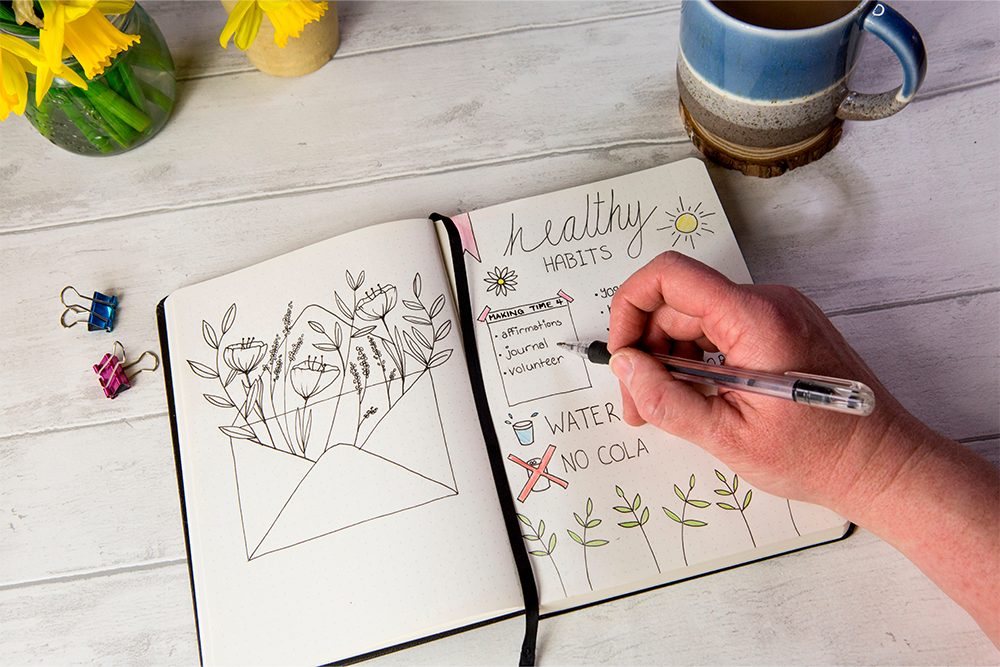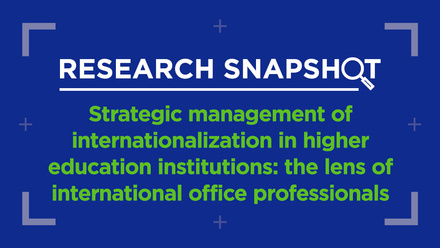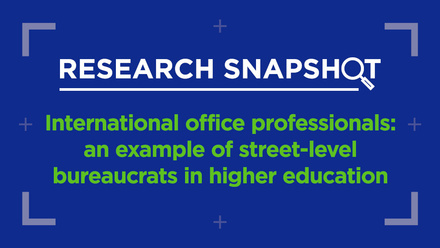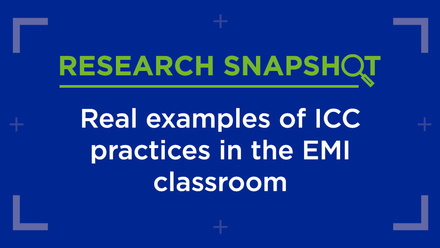6 ways to overcome stress while managing risk

Last week we launched the 2023 Spring Forum: Risk and response, the EAIE member magazine, on the theme of 'Risk and response'. Today's blog treats a similar topic: how can higher education professionals take care of themselves while fulfilling the stressful task of assessing and responding to the numerous risks facing higher education institutions today? This post offers some helpful insights, and you'll find more like it in the magazine.
Life delivers hardships to every generation. However, in our time, we find ourselves in a vortex of hardships and uncertainties – a polycrisis. The ongoing COVID-19 pandemic, political unrest, economic turmoil and natural disasters inflamed by climate change can bear down on us and make daily life itself seem a high-risk endeavour.
Living in the shadow of stressors beyond our control can lead us steadily – and often stealthily – into a life of chronic stress. We are unlikely to disconnect from this burden when we enter the workplace. Once at work, we can be tasked with analysing the situations and events that cause our own stress and to manage risks associated with them. Because it is well documented that stress impairs memory and decreases higher-order thinking, if we want to bring wisdom and clarity to risk management, we first need to manage our own stress. Thankfully, there are many simple things that we can do to manage that stress and make us better able to perform our jobs.
1) Drink water
In the last decade, a number of studies have found that keeping well hydrated is not only good for the body but also good for the mind. Water intake appears to be linked to mood, anxiety and depression, and cognitive function. Keeping water at your desk and drinking it frequently throughout the day is an easy way to keep your brain well lubricated and ready to tackle the complicated challenges we face.
2) Laugh
Laughing makes us feel good. However, laughter provides us with more than a good time. Its benefits include muscle relaxation, reduced blood pressure and improved immunity. American psychiatrist Dr William Fry has referred to laughter as "internal jogging", and it makes us healthier and stronger. Laughter reduces stress hormones and can give us moments of joy. Instead of scrolling through social media during your down time at work, consider watching some funny videos or a sitcom. The positive feelings you get can carry over into the rest of your day.
3) Be active
Exercise seems to be good for everything, and while most of us cannot take a yoga break at work, we can make a point of getting out of our chairs throughout the day. Walk over to talk with a colleague instead of emailing. Take the long way to the printer. Use part of your lunch break to take a walk. Research has shown that just ten minutes of walking can rid us of stress hormones and release endorphins that stimulate relaxation and lift our spirits.
Good relationships are not just a bonus in life; they are building blocks of optimum performance
4) Connect with people
Good relationships provide us with energy and purpose. They remind us that whatever challenges we are facing are not faced alone. Making an effort to connect with our colleagues on a personal level can yield benefits well beyond forming strong teams. Human connection can build a sense of belonging, self-worth and confidence and allow us to perform at our best. No matter how harried we feel as we rush through our day, taking time to connect with others should be a priority in the workplace. Simply having lunch with colleagues a few times a week can improve your well-being. So can taking a few moments during a break to check in with loved ones. Good relationships are not just a bonus in life; they are building blocks of optimum performance.
5) Organise your self-care time
We keep our calendars updated with meetings and deadlines, but most of us do not include scheduled self-care. Consciously planning time to do things such as laugh, move and connect are not generally considered high priorities. However, there is ample evidence to show that these things are important for us to perform at our best. Taking the time to schedule these things in our busy workdays can be key to building our best selves, so look at your week ahead and plan some things to help you bring your best self to your job. And then, stick to the plan.
6) Eat some chocolate
On days when nothing else works, eat some chocolate. Polyphenols found in cocoa have been shown to reduce stress and improve memory. Eating a mere 40 grams of dark or milk chocolate can regulate cortisol levels, stabilise metabolism and, in turn, help stabilise you. In addition to this benefit, it simply tastes great and can provide a moment of pleasure.
If we want to bring wisdom and clarity to risk management, we first need to manage our own stress
Although episodes of acute stress can provide bursts of energy that enable positive outcomes, chronic stress inhibits our ability to do our finest work. Working with the challenges and crises inherent to risk management can take a toll on our metal health and prevent us from making our top contributions in the workplace. In order to bring your best self to the table, start by making an effort to provide yourself some self-care. With the proper amount of care, you can prepare for whatever your work presents because quite simply, when we feel better, we work better.






